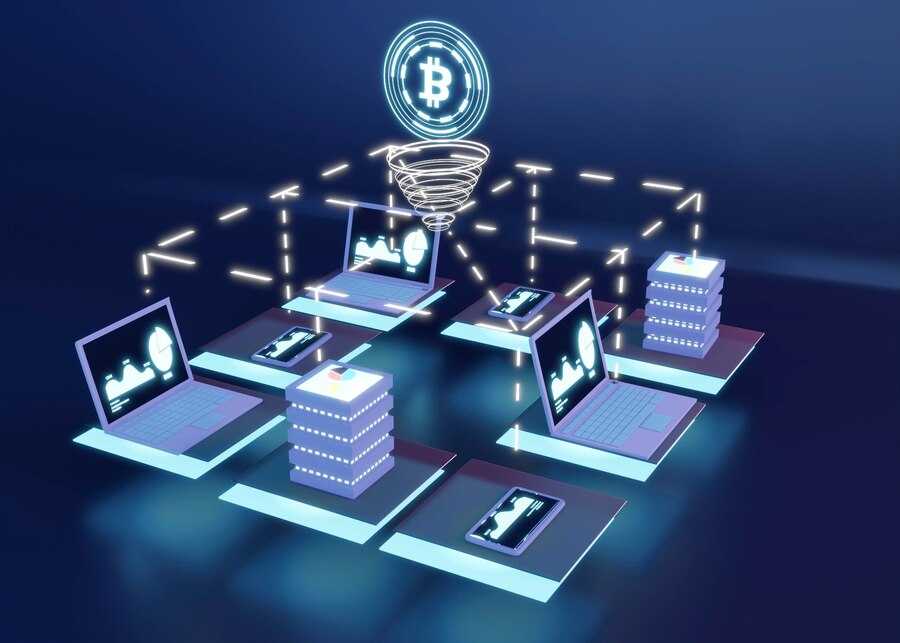The Future of E-commerce: The Role of Web 3.0 and Cryptocurrencies

Technological innovation, a result of human action – a dynamic process capable of overcoming countless barriers – is advancing swiftly. Even those involved in software development may sometimes find it overwhelming. Do you recall the time in the ’90s when web content was limited to reading? Just imagining it brings a sense of charm and nostalgia. Yet, beyond the allure of reminiscence, celebrating our significant advancements is crucial, especially when considering the even more exciting possibilities ahead. It might be hard to believe, but we’re just getting started. As one era concludes, a new one unfolds. The initial phase, Web 1.0, consisted of static web pages, laying the groundwork for the significant leap that would bring forth social networks and user-generated content.
So, we’ve progressed from exploring basic HTML spaces to uploading photos and videos of our favorite moments – leveraging faster Internet speeds – and even sharing a resume to potentially secure a job interview within minutes – impossible to forget those times when we had to send our CV via traditional mail. With the advent of Web 2.0, we witnessed a highly sophisticated digital structure, where information began to flow bidirectionally, and enhancements to web browsers were plentiful. After more than two decades, we stand at another pivotal moment, one poised to reap the benefits of cutting-edge concepts such as artificial intelligence (AI) and cryptocurrencies. Web 3.0 represents the next phase in the current iteration of the Internet, and yes, we can confidently assert, without fear of error, that its arrival is driven and inspired by Blockchain technology.
Decentralization
It’s all about this appealing concept; that’s why it was chosen as the focus of our first note and has always been present. In the context of the Web 3.0 sphere, decentralization can be likened to what the free market represents in the economic growth of a country, acting as the driving force behind the entire system. With the new iteration of the Internet, the intention is for users to have greater control over their data and experiences. Blockchain, with its distinct characteristics such as the absence of a central authority, the capacity to offer secure identity solutions, and the ability to automate processes through smart contracts, plays a pivotal role. These aspects profoundly impact how data is stored and shared, resulting in the development of more efficient and transparent web environments.
In the exploration of a path aiming to enable safer and more personalized interactions, there arises the necessity to incorporate technologies such as artificial intelligence (AI). Web 3.0 centers on data analysis to deliver semantic search, which surpasses reliance on keywords. AI is ideal for developing search algorithms to enhance result precision.
On the other hand, virtual assistants and AI-powered chatbots translate into providing added value to the user by guiding them with advice and tips. This ensures, for example, that a purchasing experience is as intuitive as possible. There are even benefits that have a significant impact on the Blockchain field, as AI can contribute to a more effective and accurate interpretation of large blocks of data, strengthen identity management through the implementation of advanced biometric verification systems, be used to achieve more efficient and scalable consensus algorithms, and, of course, optimize smart contracts to better adapt to dynamic situations.
E-commerce
There is no room for doubt. Web 3.0, Blockchain, and artificial intelligence (AI) – everything is interconnected to give more relevance to the user. This presents a highly promising scenario for sectors that are already looking to reinvent themselves through cryptocurrencies. An example is the e-commerce sector. With Web 3.0, many developers intend to evolve towards decentralized platforms. Exploiting the potential of smart contracts is crucial so that individuals can trade with greater freedom, providing them with security and confidence, as only the information strictly necessary for the purchase would be shared.

At this point, it is worth highlighting the concept of tokenization explained in our NFTs note, as Web 3.0 will create the ideal framework for the formation of user communities. These communities not only aim to acquire digital property rights but also seek active participation in decision-making. Now, with a clear understanding that each of these concepts revolves around the absence of a central authority, the scenario is ideal for bringing innovation to various business schemes – people unleash their creativity when they are certain that there will be no impositions or obstacles in their path. The goal is to move away from practices like surveillance and invasive ads, providing more freedom. Sellers could better understand our needs, and buyers, among other benefits, would gain advantages within rewards programs. Everyone wins.
The complexity and transformative potential of Web 3.0 promise a panorama incapable of being censored or restricted, where different technologies and concepts converge to offer the user a highly customizable experience. Engines are revving up to provide an unprecedented standard of interoperability between platforms, offering users greater fluidity to navigate, carry their purchase history with them, and obtain transferable benefits through rewards.
We are aware that there will be challenges: convincing users that traditional Internet schemes can evolve towards decentralized schemes, the complexity that Blockchain technology entails – those who are not familiar with the crypto world could feel intimidated – and the disenchantment it produces in the most conservative individuals due to the volatility of cryptocurrencies. The development of educational content based on empirical evidence is key. Initially, there will be people with no interest in evaluating information that does not praise established social and buying/selling media. We will revisit this audience later, once we have captured the attention of a significant percentage of users who are already eager for innovation and new technologies and have a higher level of maturity.
Amid this revolution, we are not lagging; we already have an ace up our sleeve: the LOAD protocol, an open-source framework that we are currently building as a cornerstone in Web 3.0. We aim to empower the community through an appealing platform that ensures affordable and efficient transactions, fostering the emergence of new global and local markets. What we envision goes beyond the introduction of a new token. Although it may be hard for some to believe, this is just the beginning of the exciting intersections between online shopping and community engagement. Once we launch LOAD, users will quickly realize that they are more than mere observers in the ecosystem. The new generation of the Internet is just around the corner, and we must capitalize on the attractive solutions it offers us.
Quick Links
Legal Stuff
Social Media
